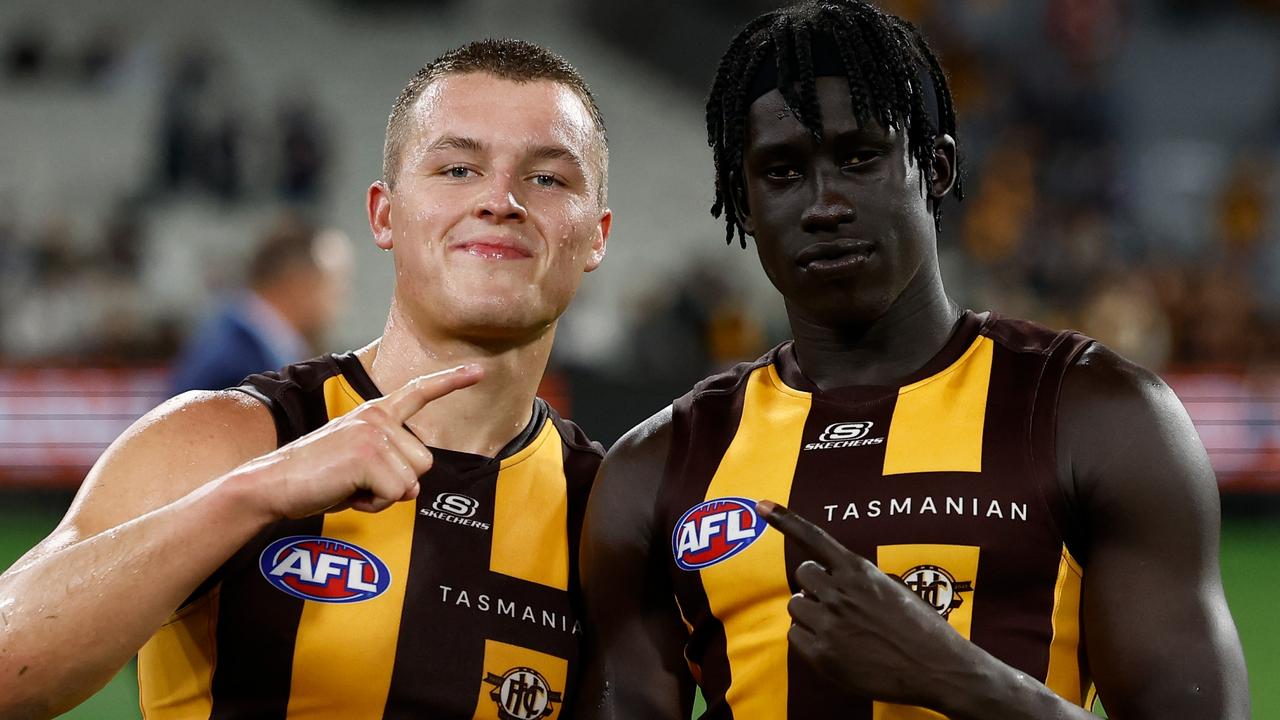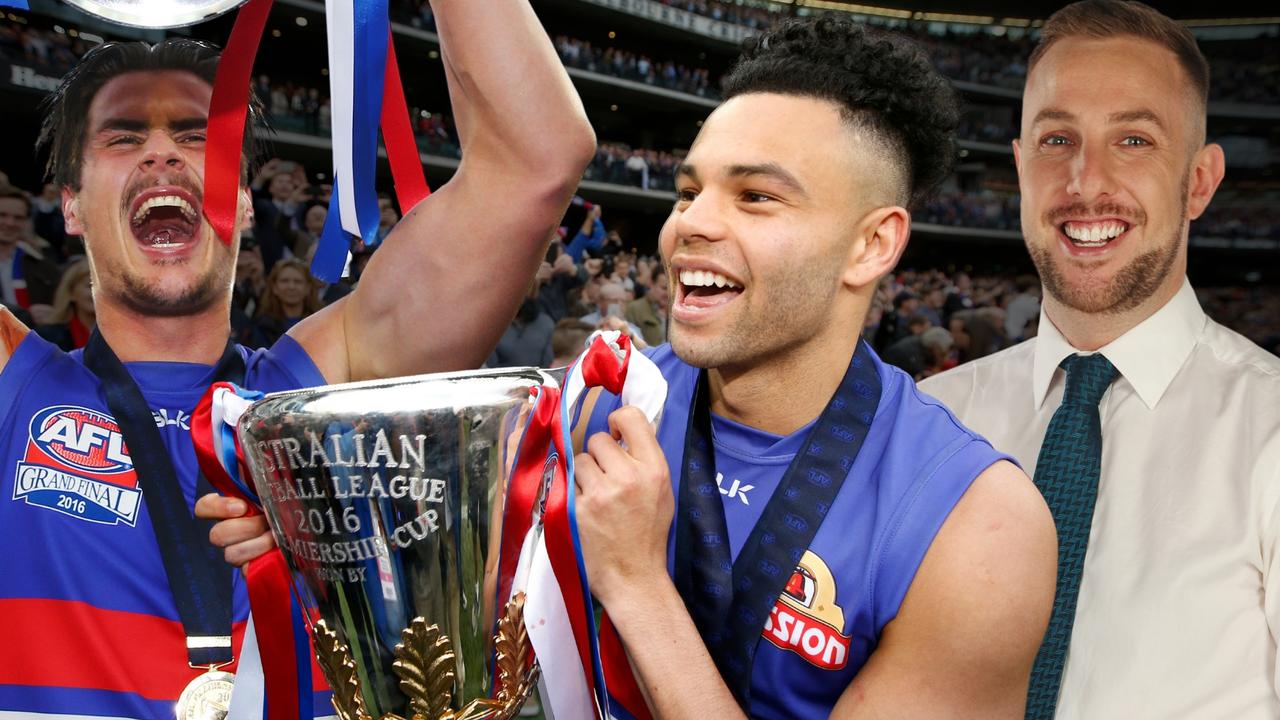Footy loses one of the good guys after death of Dean Bailey
DEAN Bailey loved footy and family. And both will miss him terribly, writes Mark Robinson. The ex-Demons coach died aged 47.
THERE is great sadness at four football clubs today.
With Dean Bailey’s passing — he had just turned 47 — Essendon, Port Adelaide, Melbourne and Adelaide have not only lost good football person, but a good bloke.
FORMER DEMON COACH LOSES CANCER FIGHT
PICTURES: DEAN BAILEY’S CAREER IN PICTURES
Even at the height of the Melbourne tanking scandal, when Bailey was accused and found guilty of orchestrating his team to lose, Bailey did not let his anger dominate him.
He never truly spoke about that time, but several people close to the situation said it was a desperately stressful time for him and his family.
In a controversial decision, Bailey was suspended by the AFL for 16 rounds of football and returned to the Crows — where he was the club’s strategy and innovation coach — in July, 2013.
LEAVE YOUR TRIBUTE TO DEAN BAILEY BELOW
In November, the club released a statement saying Bailey had been diagnosed with cancer.
He died four months later.
Who’s to know if the torment of the tanking saga contributed to his ill health, but more than one senior coach has commented recently about the stress of coaching, let alone dealing with the magnitude of the AFL investigation in tanking and subsequent finding.
Only once did Bailey open up about the affair. It was at his press conference on the day of his sacking at Melbourne and Bailey was asked: Did you tank games?
“I had no hesitation at all in the first two years of ensuring this club was well placed for draft picks,’’ Bailey said. “I think what we’ve done is the right thing by the club, and if it cost me my job, so be it. But the club is always bigger than the individual.
“I was asked to do the best thing by the Melbourne Football Club and I did it. I did the right thing by the Melbourne Football Club.’’
Bailey could never be accused of shirking an issue.
In the week and months leading up to sacking at Melbourne — it came after the team lost by 186 points at Geelong — Bailey was never critical of the players.
Under intense questioning, he would keep a calm manner and would say football, as in life, was learning experience.
He was a husband, father, footballer, coach and teacher of young men and was highly regarded in the football world.
Four footy clubs can’t be wrong.
As a player, Bailey was honest, which usually means he wasn’t a bad footballer, but neither was he a very good footballer.
He played at Essendon from 1986-1992, for 53 games and 19 goals.
In one game in 1987 against Fitzroy, Bailey recorded nine tackles. It is an extraordinary high number considering the Bombers that day laid just 38 and Fitzroy a paltry 30.
Bailey would rarely be seen surging through half-forward with the goals in sight. Instead, he was a head down bum up kind of player, a workhorse.
His thick, stumpy legs would seem to shuffle and not stride out and, more often than not, his socks would be at his ankles. With calf muscles the size of slabs of beef, it was uncomfortable to have the socks at the knees, nor, really was it a good look.
He played mainly in the middle, with stints at half-back and half-forward.
Season 1989 was his best. He played 17 games, including three finals, and would’ve had a front-row seat to the carnage inflicted by Gary Ablett on the Dons in the preliminary final at Waverley. Bailey had nine possessions that day. Ablett kicked 8.5.
Coaching was his pathway.
He was development coach at Essendon for the 2000 premiership, was assistant coach at Port Adelaide when the Power created history in 2004, and was senior coach at the Demons from 2008-2011.
His numbers would announce him a failure — 22 wins, 59 losses and two draws — but there were always suitors for his terrific football knowledge.
Bailey loved talking footy.
He might not have publicly displayed a raw energy for the sport, but in his considered way he was a student of the game. He spoke with a dry wit and a healthy laugh, but when it was about football, there was a purity in his conversation.
For Bailey, football was fun and serious, rewarding and destroying, and through it all Bailey held his head high.
Family and football were his life. Both will miss him terribly.


